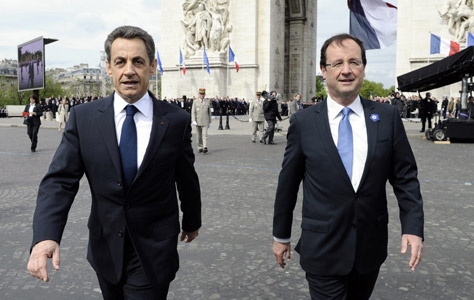Editorial
New French President and Iran

Hollande has not been very vocal on foreign policy issues. However, his main foreign policy priority will be the revival of the European economy. He has criticized the austerity-driven approach, heralded mainly by chancellor Merkel of Germany, to revive the European economy. Hollande's way of thinking has created concerns within some European capitals, particularly in Berlin, which believe decisions made at the level of the E.U. cannot be affected by election results in member countries. Hollande's policies towards Moscow or Washington are not known either. However, throughout the last few centuries, Democrats in the White House and Socialists in the Elysee have mostly worked closely on international issues, hence, close and good working relations between Obama and Hollande can be expected. Following years of close French-German relations, Hollande will pay his first foreign visit to Berlin and will have "firm and friendly" discussions with Merkel.
Nicolas Sarkozy had a very tough position against Iran, particularly on the nuclear issue. He was pushing other European countries very hard to enact sanctions on Iranian oil. France, under Sarkozy, proposed an Iranian oil embargo at the United Nations Security Council, which was later watered down by the U.S. The Sarkozy administration has always insisted on the full implementation of Security Council resolutions on Iran, including on the suspension of all uranium enrichment.
It is not entirely clear whether the new French president will follow the same tough line on Iran. During the presidential campaign, Hollande was not specific on his future Iran policy. However, socialists have traditionally been sensitive on human rights and nuclear issues, two subjects responsible for rocky relations between Iran and the West since the Islamic Revolution of 1979. Socialists' traditional close relations with Israel might also come into play in defining the new policy on Iran.
Iran cannot hide its joy over Sarkozy's defeat in the elections. It has expressed hope that the Hollande presidency will bring about "a new era" in Iran-France ties. Whether this hope can be materialized is not known yet. While Hollande seems to be close to Obama's thinking on Iran, he does not seem to be as pro-American as Sarkozy was. It is in the interest of both Iran and France to forget the past and open a new chapter in their relations.

